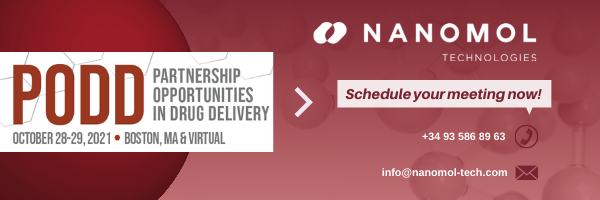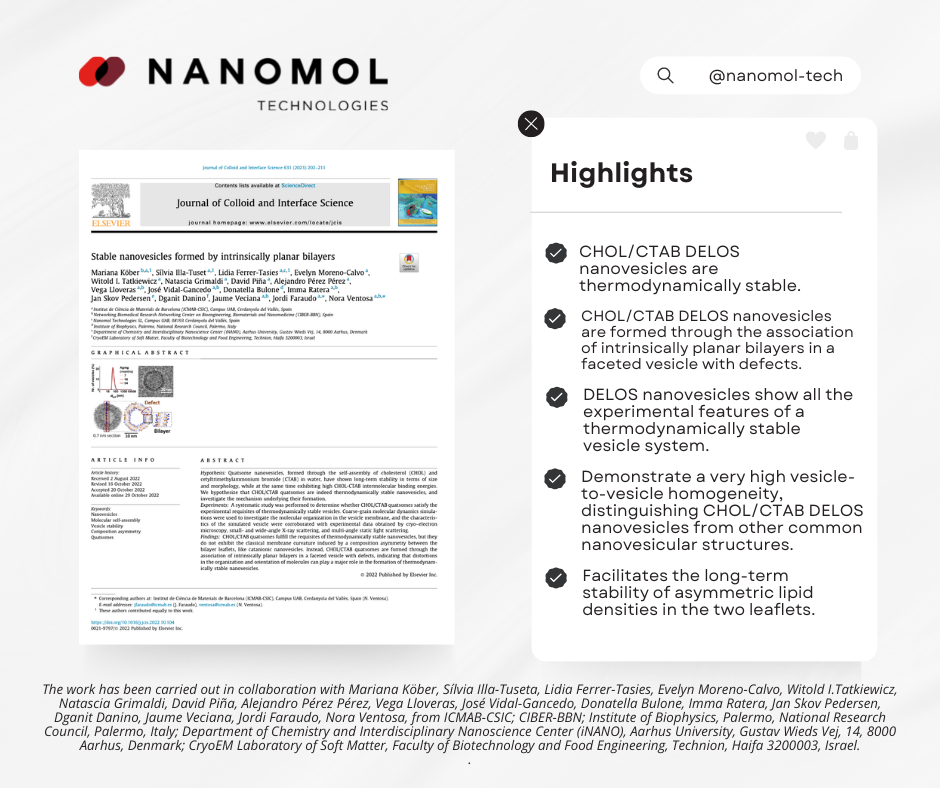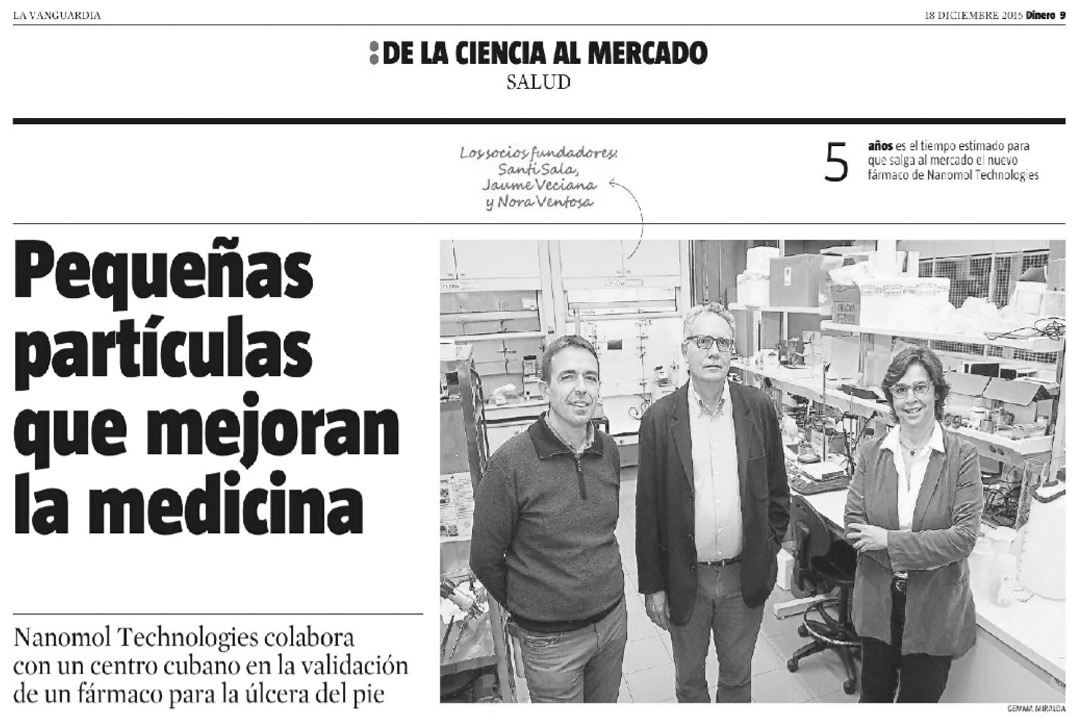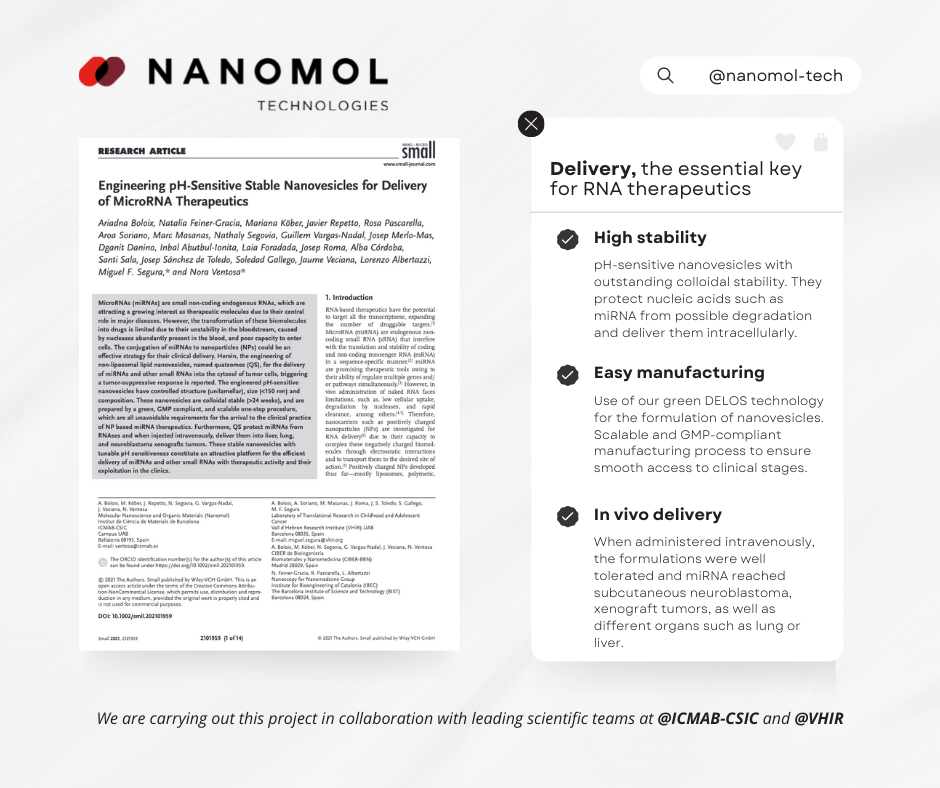
News

Stable nanovesicles formed by intrinsically planar bilayers
We brought another literature review! This time on "Stable nanovesicles formed by intrinsically planar bilayers", which has just been published in Journal of Colloid and Interface Science.
DELOS nanovesicles, also known as quatsomes in scientific literature, formed through the self-assembly of cholesterol (CHOL) and cetyltrimethylammonium bromide (CTAB) in water, have shown long-term stability in terms of size and morphology, while at the same time exhibiting high CHOL-CTAB intermolecular binding energies.
The work reports that CHOL/CTAB DELOS nanovesicles, fulfill the requisites of thermodynamically stable nanovesicles, but they do not exhibit the classical membrane curvature induced by a composition asymmetry between the bilayer leaflets, like catanionic nanovesicles. Instead, CHOL/CTAB DELOS nanovesicles are formed through the association of intrinsically planar bilayers in a faceted vesicle with defects, indicating that distortions in the organization and orientation of molecules can play a major role in the formation of thermodynamically stable nanovesicles.
In this work, we discuss CHOL/CTAB DELOS nanovesicles are indeed thermodynamically stable, and investigate the mechanism underlying their formation. A systematic study was performed to determine whether CHOL/CTAB DELOS nanovesicles satisfy the experimental requisites of thermodynamically stable vesicles. Coarse-grain molecular dynamics simulations were used to investigate the molecular organization in the vesicle membrane, and the characteristics of the simulated vesicle were corroborated with experimental data obtained by cryo–electron microscopy, small- and wide-angle X-ray scattering, and multi-angle static light scattering.
Want to learn more? Access the following link: https://www.sciencedirect.com/science/article/pii/S0021979722018756
Mariana Köber, Sílvia Illa-Tuseta, Lidia Ferrer-Tasies, Evelyn Moreno-Calvo, Witold I.Tatkiewicz, Natascia Grimaldi, David Piña, Alejandro Pérez Pérez, Vega Lloveras, José Vidal-Gancedo, Donatella Bulone, Imma Ratera, Jan Skov Pedersen, Dganit Danino, Jaume Veciana, Jordi Faraudo, Nora Ventosa. Stable nanovesicles formed by intrinsically planar bilayers. Journal of Colloid and Interface Science Volume 631, Part A, February 2023, Pages 202-211. https://doi.org/10.1016/j.jcis.2022.10.104

